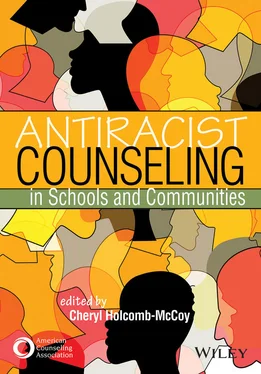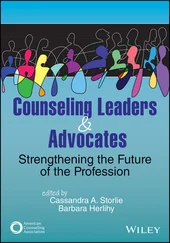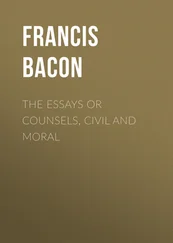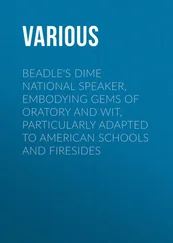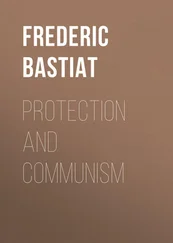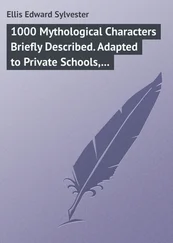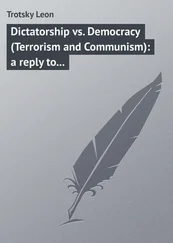15 Holcomb-McCoy, C. (2004). Assessing the multicultural competence of school counselors: A checklist. Professional School Counseling, 7(3), 178–186.
16 Horne, G. (2018). The apocalypse of settler colonialism: The roots of slavery, white supremacy, and capitalism in 17th century North America and the Caribbean. New York University Press.
17 Horne, G. (2020). The dawning of the apocalypse: The roots of slavery, white supremacy, settler colonialism, and capitalism in the long sixteenth century. Monthly Review Press.
18 Joseph, A. J. (2015). The necessity of an attention to Eurocentrism and colonial technologies: An addition to critical mental health literature. Disability & Society, 30(7), 1021–1041.
19 Judy, R. A. T. (1993). (Dis)forming the American canon: African-Arabic slave narratives and the vernacular. University of Minnesota Press.
20 Kaler-Jones, C. (2020, May 7). When SEL is used as another form of policing. Medium. https://medium.com/@justschools/when-sel-is-used-as-another-form-of-policing-fa53cf85dce4
21 Katz, J. (1985). The sociopolitical nature of counseling. Counselling Psychologist, 13(4), 615–624.
22 King, M. L., Jr. (1968). The role of the behavioral scientist in the civil rights movement. American Psychologist, 23(3), 180–186.
23 King-White, D., & Kurt, L. (2019). The role of school counselors in the RTI process at the secondary level. In P. L. Epler (Ed.), Advanced strategies and models for integrating RTI in secondary schools (pp. 78–88). IGI Global.
24 Kohli, R. (2014). Unpacking internalized racism: Teachers of color striving for racially just classrooms. Race Ethnicity and Education, 17(3), 367–387. https://doi.org/10.1080/13613324.2013.832935
25 Lorde, A. (1984). The master’s tools will never dismantle the master’s house. In Sister outsider: Essays and speeches by Audre Lorde (pp. 110–113). The Crossing Press.
26 Love, B. L. (2019). We want to do more than survive: Abolitionist teaching and the pursuit of educational freedom. Beacon Press.
27 Malott, K. M., & Paone, T. R. (2011). The meaning of whiteness: Addressing the taboo in counselor education. In VISTAS 2011. https://www.counseling.org/Resources/Library/VISTAS/2011-V-Online/Article_28.pdf
28 Marsella, A. J. (2015). Decolonization of mind and behavior: A responsibility of professional counselors. In R. D. Goodman & P. C. Gorski (Eds.), Decolonizing “multicultural” counseling through social justice (pp. vii–x). Springer.
29 McKittrick, K. (Ed.). (2015). Sylvia Wynter: On being human as praxis. Duke University Press.
30 Mitcham-Smith, M. (2007). Advocacy—Professional school counselors closing the achievement gap through empowerment: A response to HipolitoDelgado and Lee. Professional School Counseling, 10(4), 341–343. https://doi.org/10.1177/2156759X0701000405
31 Morris, M. (2016). Pushout: The criminalization of Black girls in schools. The New Press.
32 Morrison, T. (2017). The origin of others. Harvard University Press.
33 Naidoo, A. V. (1996). Challenging the hegemony of Eurocentric psychology. Journal of Community and Health Sciences, 2(2), 9–16.
34 Patterson, O. (1982). Slavery and social death: A comparative study, with a new preface. Harvard University Press.
35 Patterson, O. (2018). Slavery and social death: A comparative study. Harvard University Press.
36 Prilleltensky, I. (1994). The morals and politics of psychology: Psychological discourse and the status quo. State University of New York Press.
37 Ratts, M. J., Singh, A. A., Nassar-McMillan, S., Butler, S. K., & McCullough, J. R. (2016). Multicultural and social justice counseling competencies: Guidelines for the counseling profession. Journal of Multicultural Counseling and Development, 44(1), 28–48.
38 Rivera, E. T., & Torres, I. (2015). Tools of oppression and control in counseling: Making the invisible, visible. Griot, 8(1), 119–127.
39 Singh, A. A. (2019). The racial healing handbook: Practical activities to help you challenge privilege, confront systemic racism, and engage in collective healing. New Harbinger.
40 Singh, A. A., Urbano, A., Haston, M., & McMahan, E. (2010). School counselors’ strategies for social justice change: A grounded theory of what works in the real world. Professional School Counseling, 13(3), 135–145. https://doi.org/10.1177/2156759X1001300301
41 Smith, L. C. (2015). Alterity models in counseling: When we talk about diversity, what are we actually talking about? International Journal for the Advancement of Counselling, 37(3), 248–261. https://doi.org/10.1007/s10447-015-9241-8
42 Stanfield, J. H. (1985). The ethnocentric basis of social science knowledge production. Review of Research in Education, 12, 387–415.
43 Sue, D. W. (2006). The invisible whiteness of being: Whiteness, white supremacy, white privilege, and racism. In M. G. Constantine & D. W. Sue (Eds.), Addressing racism: Facilitating cultural competence in mental health and educational settings (pp. 15–30). Wiley.
44 Sue, D. W., Arredondo, P., & McDavis, R. J. (1992). Multicultural counseling competencies and standards: A call to the profession. Journal of Multicultural Counseling and Development, 20(2), 64–88.
45 Sue, D. W., & Sue, D. (1999). Counseling the culturally different: Theory and practice. Wiley.
46 Sue, D. W., & Sue, D. (2019). Counseling the culturally different: Theory and practice (8th ed.). Wiley.
47 Suite, D. H., La Bril, R., Primm, A., & Harrison-Ross, P. (2007). Beyond misdiagnosis, misunderstanding and mistrust: Relevance of the historical perspective in the medical and mental health treatment of people of color. Journal of the National Medical Association, 99(8), 879–885.
48 Thomas, V. G. (2004). The psychology of Black women: Studying women’s lives in context. Journal of Black Psychology, 30(3), 286–306.
49 Vargas, J. H. C. (2010). Never meant to survive: Genocide and utopias in Black diaspora communities. Rowman & Littlefield.
50 Vaught, S. E. (2009). The color of money: School funding and the commodification of Black children. Urban Education, 44(5), 545–570.
51 Washington, A., & Henfield, M. (2018). Introduction: School-to-prison pipeline special issue. Taboo, 17(4). https://doi.org/10.31390/taboo.17.4.01
52 Washington, A. R., & Henfield, M. S. (2019). What do the AMCD Multicultural and Social Justice Counseling Competencies mean in the context of Black Lives Matter? Journal of Multicultural Counseling and Development, 47(3), 148–160. https://doi.org/10.1002/jmcd.12138
53 Watkins, W. H. (2001). The white architects of Black education: Ideology and power in America, 1865-1954. Teachers College Press.
54 White, J. L. (1984). Toward a Black psychology. In R. L. Jones (Ed.), Black psychology (pp. 5–16). Harper & Row.
55 White, J. L., & Parham, T. A. (1990). The psychology of Blacks. Prentice Hall.
56 Wilder, C. S. (2013). Ebony and ivy: Race, slavery, and the troubled history of America’s universities. Bloomsbury Press.
57 Wilderson, F. B., III. (2010). Red, white and Black. Duke University Press.
58 Williams, J. M., Greenleaf, A. T., & Duys, D. K. (2013). Who’s to blame? Client problems and the causal attributions made by counselors-in-training. Journal of Counselor Preparation and Supervision, 5(2), Article 1. https://digitalcommons.sacredheart.edu/jcpc/vol5/iss2/1/
59 Wrenn, C. G. (1962). The culturally encapsulated counselor. Harvard Educational Review, 32(4), 444–449.
60 Wynter, S. (2003). Unsettling the coloniality of being/power/truth/freedom: Towards the human, after man, its overrepresentation—An argument. CR: The New Centennial Review, 3(3), 257–337.
Конец ознакомительного фрагмента.
Текст предоставлен ООО «ЛитРес».
Читать дальше
